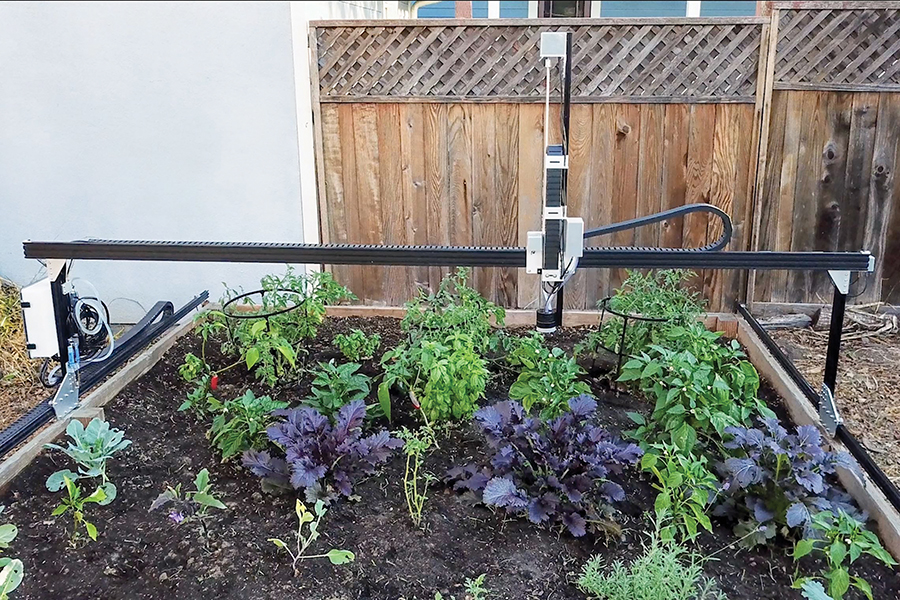FarmBot arrives at Madison College
STEM Center looks forward to testing the new robotic farming equipment
Photo provided to the Clarion by FarmBot.com
Madison College’s STEM Center is adding a robotic farming machine called FarmBot, that works on raised garden beds.
January 22, 2020
The FarmBot, a robotic farming machine that plants, waters and weeds crops, will be arriving at Madison College at the end of January. Students and staff of the STEM Center have been getting prepared for the initial set up that will begin indoors. It will be stationed in Room A2025 on the second floor of the Truax campus.
The first step is to get it set up on a raised rolling bed with a base of a 4-foot by 8-foot plywood tabletop. Then walls and soil will be added. After the setup is complete, the STEM Center plans to create a larger bed to take outside for the summer.
According to Kevin Mirus, the director of Madison College’s STEM Center, there are three design elements they will focus on regarding the FarmBot. One is space and how the FarmBot can be expanded into a larger garden. Another is incorporating a self-sustained solar power system to power the machine once it is placed outdoors. Lastly is developing a water storage system with the help of rain collection.
Mirus said the FarmBot will have many impacts on campus, which include showing the on-going support and commitment the community has for agriculture. This project also brings a way to get involved with more advanced, yet assessable, technology.
The sustainability portion of this project will bring more awareness and respect to the art of gardening and organic lifestyles. Mirus said it will bring hands-on learning experiences to Madison College, giving students an opportunity to use what they learn and apply it daily within their community.
The FarmBot brings opportunities for multiple programs on campus to utilize this equipment in their own ways. In fact, Mirus hopes the FarmBot isn’t perfect so that this project encourages help from around campus.
Starting with the STEM Center, to the agricultural program, construction and engineering, along with the renewable energy program, there is a list of possible collaborations with this project. Students who are involved with botany, advanced manufacturing, computer science as well as plumbing could also assist with the FarmBot.
Mirus also sees a possible connection the FarmBot could have with the culinary program. The very efficient composter that the culinary program provides will be able to assist with the FarmBot.
“They can be taking the compost of that and use it as the garden soil that the FarmBot is operating on and use that to grow what goes back to the culinary program,” mentions Mirus. The FarmBot, in years to come could potentially supply the culinary program or even the cafeteria. This produces a whole sustainability cycle on campus.
The STEM Center is brainstorming about future possibilities for this project. There could be a chance if the project succeeds, that the college could produce more FarmBots with multiple plots on larger scales. Since it is weather resistance, a future goal would entail having an outdoor greenhouse that could produce crops yearly for the community.
Mirus hopes that projects like the FarmBot will bring the community together, but most importantly the college’s students.
“I’m interested in providing students with authentic, meaningful and motivational learning opportunities that will keep them going through their education and moving forward in their careers,” he said.































